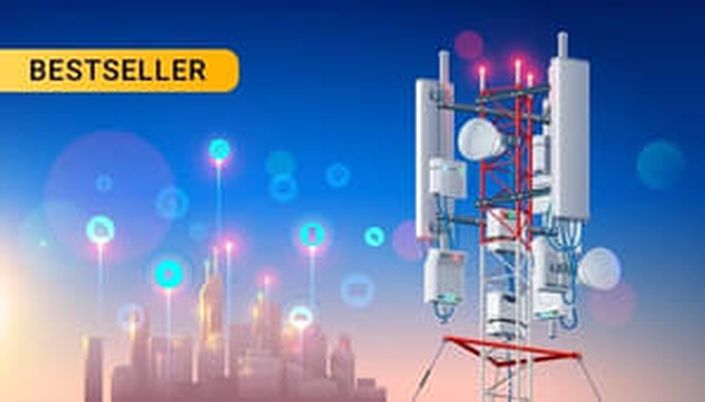Home > Technical Articles > Who invented 5G
Who invented 5G
5G technology is the result of collaborative efforts from multiple individuals, organizations, and companies in the field of telecommunications and technology. It is not attributed to a single individual who "invented" it, but rather it has evolved through the contributions of numerous researchers, engineers, and industry stakeholders over several years.
The development of 5G technology can be traced back to the International Mobile Telecommunications-2000 (IMT-2000) project initiated by the International Telecommunication Union (ITU) in the late 1980s. The goal of the project was to create global standards for third-generation (3G) mobile communications, which eventually led to the widespread adoption of technologies like CDMA2000 and WCDMA.
As 3G technology matured, the need for faster data rates and improved network performance became evident, leading to the emergence of 4G LTE (Long-Term Evolution) technology. While 4G technology provided significant advancements, the increasing demand for high-speed data and connectivity called for the development of a new generation of wireless technology—5G.
In terms of key contributors and organizations involved in the development of 5G technology, here are some notable entities:
Academia and Research Institutions:
Researchers and academic institutions worldwide have played a vital role in advancing the underlying technologies and concepts that form the basis of 5G. Their work in areas such as radio wave propagation, antenna design, signal processing, and network architecture has contributed to the evolution of wireless communication systems.
Standards Organizations:
Standardization bodies like the ITU and the 3rd Generation Partnership Project (3GPP) have been instrumental in defining the technical specifications and standards for 5G. The ITU's IMT-2020 project established the framework and requirements for 5G, while 3GPP, a collaboration between various telecommunications standards organizations, developed the technical specifications for 5G.
Telecommunications Companies and Equipment Manufacturers:
Leading telecommunications companies and equipment manufacturers have made substantial investments in research and development to drive the deployment of 5G networks. Companies such as Huawei, Ericsson, Nokia, Samsung, Qualcomm, and Intel have been actively involved in developing the hardware, infrastructure, and technologies necessary for 5G implementation.
- Qualcomm: Qualcomm is a leading manufacturer of mobile chipsets. Qualcomm played a major role in developing the 5G radio technology.
- Huawei: Huawei is a Chinese telecommunications company. Huawei is one of the leading manufacturers of 5G equipment.
- Ericsson: Ericsson is a Swedish telecommunications company. Ericsson is one of the leading manufacturers of 5G equipment.
- Nokia: Nokia is a Finnish telecommunications company. Nokia is one of the leading manufacturers of 5G equipment.
Government and Regulatory Bodies:
Governments and regulatory bodies worldwide have played a role in supporting the deployment of 5G networks. They have allocated spectrum, set policies, and provided regulatory frameworks to facilitate the development and adoption of 5G technology.
It's important to note that while specific individuals and organizations have made significant contributions to the development and implementation of 5G technology, the overall process has been a collective effort involving collaboration, research, and innovation across the global telecommunications industry.
5G Technology
5G is the fifth generation of cellular network technology. It is designed to offer significantly faster speeds, lower latency, and more capacity than 4G LTE. 5G is expected to have a major impact on a wide range of industries, including:
- Telecommunications: 5G will enable new telecommunications services, such as ultra-high-definition video streaming and virtual reality.
- Manufacturing: 5G will enable the use of smart machines and robots in manufacturing, which could lead to increased productivity and efficiency.
- Healthcare: 5G will enable new telemedicine applications, such as remote surgery and patient monitoring.
- Transportation: 5G will enable the development of self-driving cars and other connected vehicles.
-
Retail: 5G will enable new retail applications, such as real-time inventory tracking and augmented reality shopping experiences.
Featured 6G, 5G Training Courses and Certifications
TELCOMA Global is a leader in Telecom Training Courses and Certifications since 2009. Learn the trending technological skills in 6G, 5G, 4G-LTE, IoT, Machine Learning, and Artificial Intelligence (ML/AI), Cloud and microservices, ORAN, Edge Computing, etc and get hired in the world's best Telecom companies. Discover the fastest, most effective way to gain job-ready expertise for the careers of the future. With TELCOMA Certification, you can be the Telecom professional employers seek.

